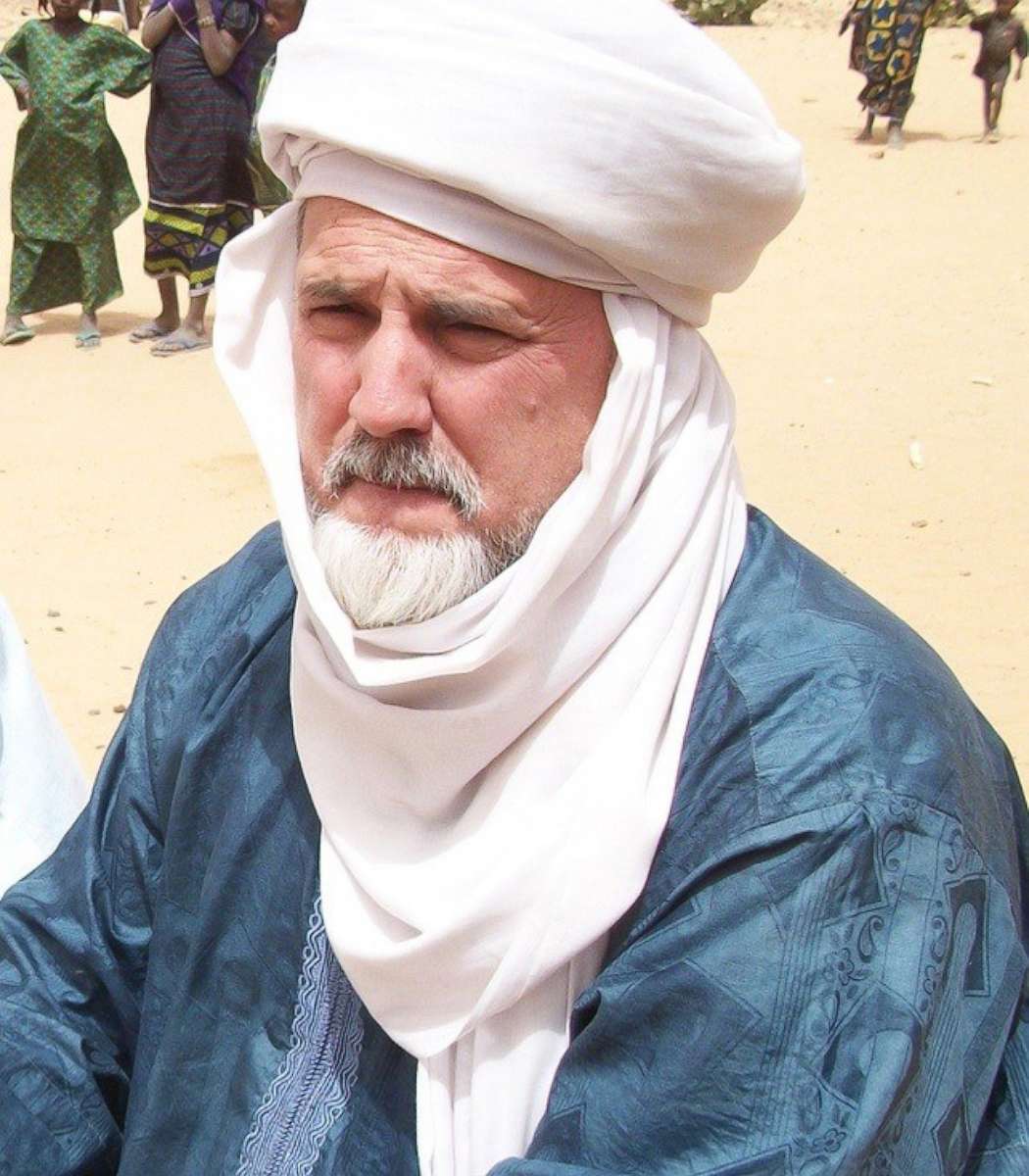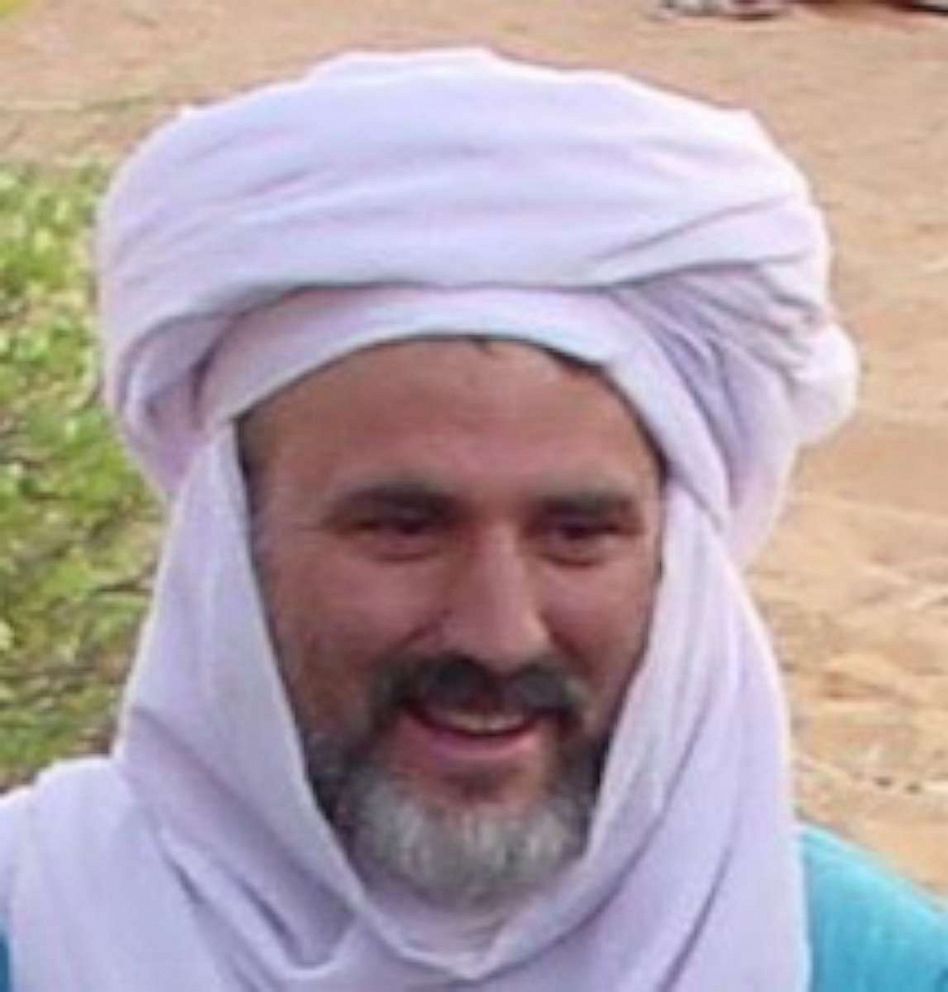American hostage held by ISIS is alive: Niger president
Jeffery Ray Woodke, 59, of McKinleyville, Calif., was kidnapped in October 2016.
An American missionary abducted by Islamic State-linked terrorists in Africa three years ago is still alive and in captivity, the president of Niger said in a recent interview with ABC News.
Jeffery Rey Woodke, 59, of McKinleyville, California, was kidnapped in October 2016 while doing humanitarian missionary work in Niger. He is believed to be a hostage of a jihadi group affiliated with ISIS, multiple U.S. counterterrorism officials have told ABC News.
"Fortunately -- and I had to declare it a few weeks ago -- he is alive and he is in good health," Nigerien President Mahamadou Issoufou told ABC News.
Woodke's recovery has been a priority for American military and intelligence assets in the Sahel region of Africa since 2016 -- valuable resources Issoufou said he’d like more of in order to succeed in defeating Islamist militants who cross into Niger to carry out attacks.
"We will continue in any case to do everything to make conditions for his liberation," the Nigerien leader said in French through an interpreter.
The interview took place while Issoufou was in New York for the United Nations General Assembly in September.

Woodke had worked in Niger for almost three decades as a humanitarian aid worker when he was kidnapped in Abalak and driven off in the direction of Mali while working for a local aid group called JEMED. Video shot hours earlier showed Woodke meeting with tribal elders in his role of humanitarian aid worker trying to help nomads overcome drought and disease.
The FBI and Woodke's wife Els have made pleas for the missionary's safe return. Intelligence has consistently indicated Woodke is alive, U.S. sources have told ABC News.
"He was helping a lot of the Nigerien population," Issoufou told ABC News, expressing "regret" over Woodke being taken hostage.

A representative of the hostage’s family said Woodke’s wife declined to comment on the remarks by the Nigerien leader to ABC News.
"The U.S. Government continues to work tirelessly to bring all U.S. hostages home, including Mr. Woodke. We welcome President Issoufou's focus on Mr. Woodke and his humanitarian work. The U.S. government looks for continued cooperation with the Government of Niger to quickly reunite Jeff with his family," Kieran Ramsey, director of the Hostage Recovery Fusion Cell, said in a statement to ABC News on Tuesday.
The Hostage Recovery Fusion Cell is a joint agency created in 2015 to coordinate all U.S. government efforts to safely recover American hostages worldwide.
Issoufou’s comments came just before the anniversary of an ambush of a joint American and Nigerien patrol on Oct. 4, 2017, which left four U.S. special operations soldiers and at least five Nigerien troops dead outside the village of Tongo Tongo, in northwest Niger near the Mali border. During his interview with ABC News, he expressed his condolences to the four American families several times.
The U.S. Special Forces team caught in the 2017 ambush, Operational Detachment-Alpha 3212, from 2nd Battalion, 3rd Special Forces Group (Airborne), was carrying out three "civil/military reconnaissance" missions between Oct. 3-4, 2017 focused on learning the location of an ISIS subcommander known as Doundoun Cheffou. In the ensuing ambush and gunfight near Tongo Tongo, Sgt. 1st Class Jeremiah Johnson, Staff Sgt. Dustin Wright, Staff Sgt. Bryan Black and Sgt. LaDavid Johnson were killed in action.
An investigation by U.S. Africa Command last year criticized lower-level U.S. Army Special Forces commanders, who all received reprimands for training deficiencies prior to their Africa deployment. The families of the fallen have criticized the investigation for withholding key details, reaching questionable conclusions and for failing to punish senior commanders involved in the ill-fated mission.
On Friday's anniversary of the ambush, the U.S. Rewards For Justice program offered $5 million for information leading to the capture of Adnan "Abu Walid" al-Sahrawi, the leader of an ISIS affiliate that the U.S. Department of State blames for the 2017 ambush. Unmentioned in the wanted poster is that the group al-Sahrawi leads, ISIS Greater Sahara, is suspected as having kidnapped Woodke three years ago.
In a speech to the U.N. General Assembly last month, Issoufou pleaded for the West to do more to help his country counter the jihadi and criminal groups that have proliferated across the Sahel since the U.S. assisted in the toppling of Libyan leader Moammar Qadhafi in 2011 without any plan for governing the region after he was gone.
"This is not only a mistake ... I do think it is a fault committed in Libya, despite those of us who warned (the U.S.) as early as 2011 that if we did not pay attention, Libya could be a new Somalia, that Libya could fall into the hands of terrorist organizations," Issoufou told ABC News.
The Nigerien leader said that he came to the U.N. to plead for a larger coalition force in the Lake Chad region to deny terrorists a safe haven in parts of Mali, Nigeria and Burkina Faso bordering his country, where both al-Qaeda and ISIS operate. Last year, U.S. Africa Command announced plans to draw down the number of U.S. forces by 10% on the continent.
"What we do think is in order -- to face the threat in this region -- the international community and especially the United States have to do more in order to prevent the expansion of the threat. Because if we let the threat get stronger -- and this is currently the case -- it will cost more to stop it afterwards," he warned. "And of course we do need more resources, more (military) training, from our American friends and the French."
ABC News producers Brian N. Epstein and Dylan Goetz and ABC News contributor Andrew Fredericks contributed to this report. This report has been updated.




